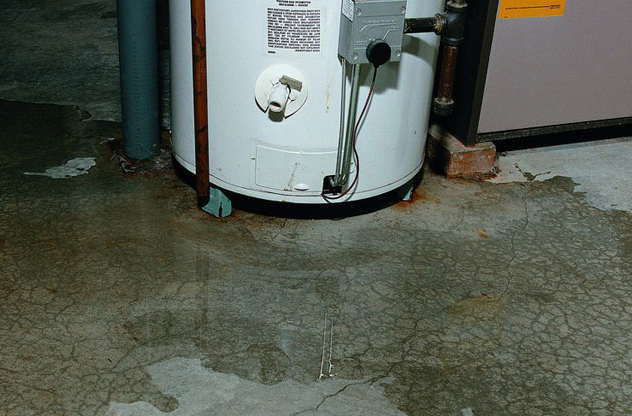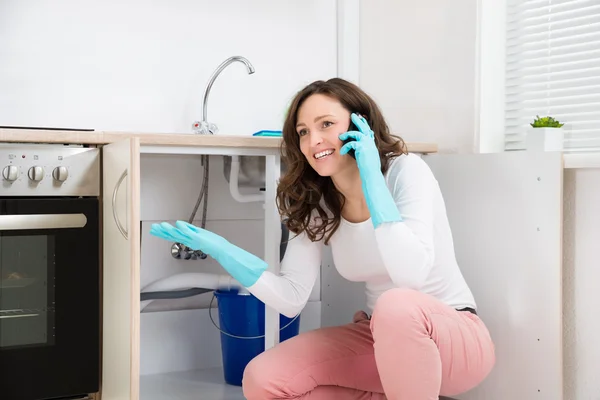5 Persistent Water Leak Factors
5 Persistent Water Leak Factors
Blog Article
This great article which follows about Reasons for Water Heater Leaks is particularly enlightening. Give it a try and draw your own personal conclusions.

"Be careful of little expenditures. A tiny leak will sink a wonderful ship." - Benjamin Franklin.
He could not have actually been extra appropriate due to the fact that water leakages in our houses cause a waste of sources, boosting our water expenses. This boost could appear negligible at initially, it can lead to substantial expenses that can damage your bank. Apart from a rise in bills, water leaks additionally create unwanted natural development, architectural damages, as well as also electrical dangers.
Determining if you have a water leakage isn't always simple because of being incapable to see most of the pipework in your home. Nevertheless, If you have had a boost in your water expenses recently, saw water stains on walls and ceilings, scented poor smell, and so on. You may wish to think about requesting plumbing services to get it had a look at.
There are several causes of water leakages, as well as we have compiled the usual reasons listed below. Inspect to see if you have had relevant issues in your house just recently.
Compromised pipeline joints
Pipeline joints are the components of our plumbing system where the pipelines link. It is vital to note that even though pipes are designed to hold up against stress as well as last for a while, they weren't developed to last forever; as a result, they would deteriorate over time. An usual indication of damaged pipeline joints is extreme noise from faucets.
High water pressure
You discovered your home water stress is higher than common however after that, why should you care? It's out of your control.
It would certainly be best if you cared because your average water stress should be 60 Psi (per square inch) as well as although your home's plumbing system is developed to hold up against 80 Psi. An increase in water stress can place a strain on your home pipes as well as bring about cracks, or worse, ruptured pipelines. Obtain in touch with a professional about managing it if you ever notice that your residence water pressure is greater than usual.
Rust
As your pipework grows older, it obtains weak and much more vulnerable to rust after the regular flow of water via them, which can gnaw at pipelines and also cause cracks. A noticeable indication of deterioration in your house plumbing system is staining and although this might be tough to find because of most pipes hidden away. Once they are old to ensure a sound plumbing system, we suggest doing a frequent appointment every couple of years as well as alter pipelines
Clogged drains
Food bits, dust, as well as oil can create clogged drains pipes and also obstruct the flow of water in and out of your sink. Boosted stress within the seamless gutters can finish and trigger an overflow up breaking or rupturing pipes if undealt with. To stay clear of stopped up drains pipes in your home, we suggest you to stay clear of pouring bits down the drain and also normal cleansing of sinks.
Damaged seals
One more reason for water leakages in houses is damaged seals of home devices that use water, e.g., a dishwasher. When such devices are set up, seals are installed around water ports for very easy passage of water with the equipment. Thus, a damaged seal can create leakage of water when in operation.
With little or no expertise of plumbing, understanding your house's plumbing system sufficient to take care of some of these problems (without repercussion) can be a hassle. Get in touch with plumbing experts in Pittsburgh, Providence, Rochester, and environ today, and they'll make those issues go away.
He couldn't have been extra appropriate due to the fact that water leakages in our houses result in a waste of resources, raising our water costs. If you have had a rise in your water expenses lately, saw water spots on walls and ceilings, smelt poor smell, and so on. An increase in water pressure can put a strain on your home pipelines as well as lead to splits, or even worse, burst pipelines. An additional cause of water leakages in homes is broken seals of residence devices that use water, e.g., a dish washer. When such appliances are mounted, seals are installed around water ports for very easy flow of water through the equipment.
5 TIPS IN DETECTING A WATER LEAK IN YOUR HOUSE
Water leaks can be hard to find in your home, yet they can be so common. We rely on water every day in our home, which is why a leak can cause big problems. By detecting them early, you can save money and further damage, getting the problem fixed as soon as possible. Here are 5 tips to help you detect a water leak in your home, so you can contact a plumber straight away and get the issue sorted.
Check your water meter
Many people underestimate the value of the water meter in their home. It can be one of the best ways to tell if you have a leak early on, so you can get on top of it before issues start arising. Start by turning off all the water in your home: taps, washing machine, dishwasher, etc. Now take a look at the meter – if it’s still changing with everything turned off, it’s likely you have a fast-flowing leak that you need to get on top of straight away. If nothing changes, then leave your meter for an hour or two and come back to it. Did it change in this time? It’s likely you have a slower leak, which isn’t as urgent but still handy to get fixed so it doesn’t become a bigger problem.
Keep an eye on your bill
Another good way to detect a leak in your home is by keeping an eye on your water bill. It helps if you have a past bill from the same period of time. You can compare like for like and determine whether your water usage has increased significantly. If it has, there may be a leak in your system that you haven’t picked up before. A professional plumber can check through all of your pipes and determine where it is coming from.
Look for damage
If you have a leak inside your home, you will notice damage over time. Take a look at your showers and bathtubs and note whether any of the tiles surrounding the area seem to be discoloured or damaged in any way. There may be water stains, mould or peeling material that has resulted from a build up of moisture over time. Make sure you take a look under sinks at the back of cupboards that don’t get accessed regularly. This is where damage can go unnoticed and build up over periods of time.

I am just very serious about How to Find and Prevent Water Leaks in Your Home and I am assuming you enjoyed reading the new article. Appreciated our blog posting? Please share it. Help another person find it. Many thanks for taking the time to read it.
Immediate relief? Contact. Report this page